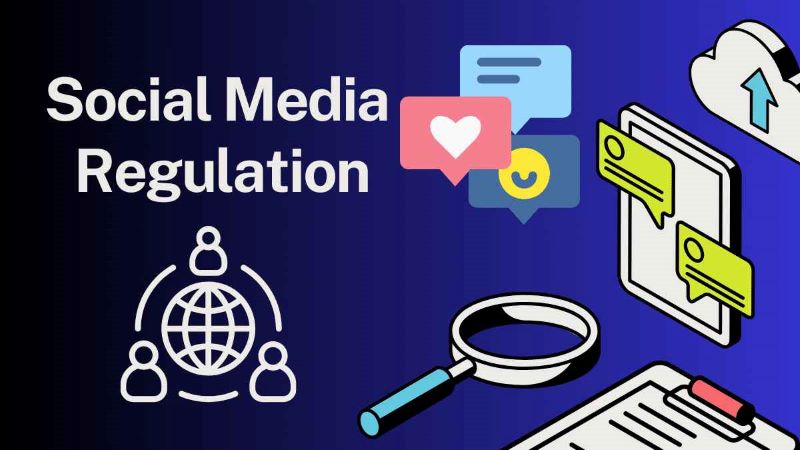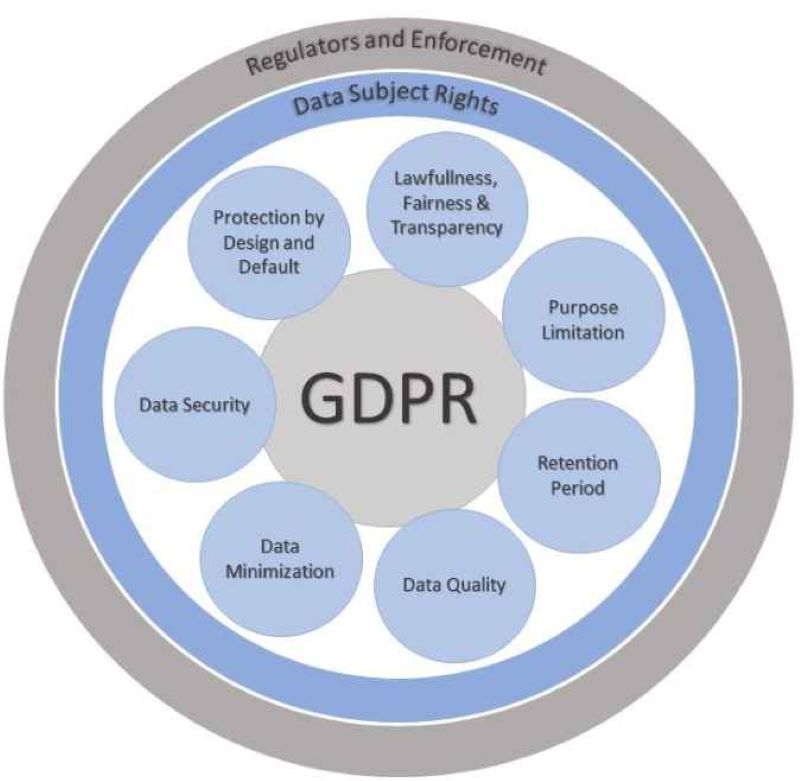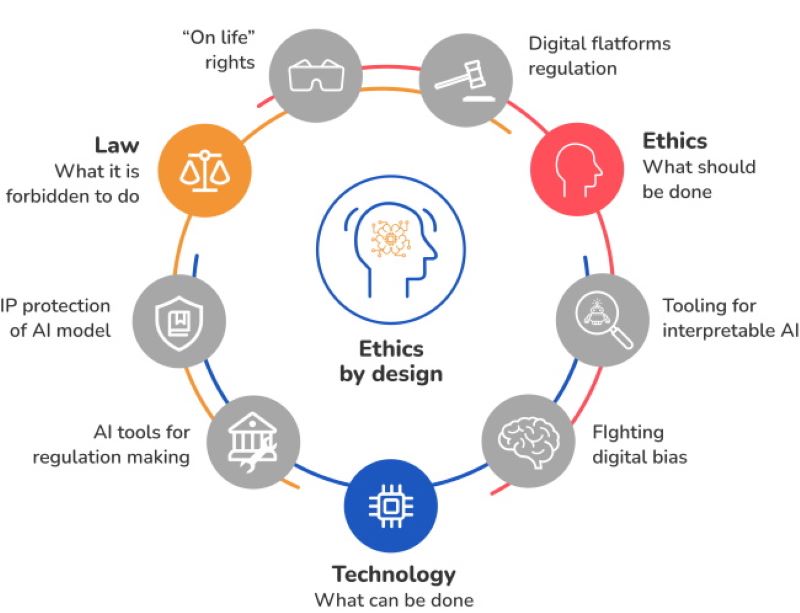In the ever-turbulent ocean of digital progress, how are different countries approaching the regulation of digital platforms? Each nation carves its path in this digital landscape, shaping the tech world’s future. From the bustling streets of Asian tech hubs to the steadfast capitals of Europe, rules are rewritten, and norms are challenged. I’ve plunged into policy trends, dissected international standards, and explored the complexities of social media laws. The quest? To uncover the real impact of these regulations on our digital lives. Let’s navigate this global patchwork of data protection, where GDPR is just the tip of the iceberg, and witness the fierce battle against digital monopolies. Buckle up, as we embark on a journey through the world’s attempt to rein in the titans of technology.
The Evolving Landscape of Global Tech Regulation
Analyzing Current Trends in Tech Policy and Governance
The world of tech is fast-paced. Nations are working hard to keep up. Each one crafts rules for how digital firms must act. These rules are shaping our online worlds. They tackle tough stuff like user privacy, data control, and making sure the online game is fair for everyone.
Take the EU’s Digital Services Act. It sets strict rules for big tech. It aims to make them more responsible. They have to check what’s on their platforms more closely. It’s about keeping users safe online.
In the US, we have Section 230. It gives platforms some space from what users do. It says they’re not usually to blame for user posts. But some want change. They say it’s too loose. They believe it lets harmful stuff spread too easy.
Looking East, there’s China’s Cybersecurity Law. It’s tight – firms must store data within China. They must also help with national security. This means a lot more control from the state. It’s a big topic all over the world.

Then there are rules on fake news. Countries are wrestling with this. How do you stop the lies but keep free speech? It’s a fine line. Some go strict, others more open. It’s a puzzle with no easy fix.
Online stores face their own rules. We call these e-commerce rules. They help buyers know they’re getting fair deals. They also protect folks’ card data. Shopping online must be safe, or people will stop clicking “buy”.
Tech firms are always growing. Sometimes too much. That’s where antitrust rules come in. They keep one big company from controlling it all. They keep the market open for new ideas.
Laws also guide AI, or artificial intelligence. It’s big tech’s next big thing. We’re making sure it’s safe for everyone. It’s about looking far ahead.
Everywhere, leaders are thinking, talking, and writing new tech rules. They’re asking how to protect people and let tech grow. It’s big work, with big impacts for us all.
How International Standards Impact Local Legislation
Imagine a rule book for the internet. That’s what some folks want. A set of rules every country follows. But it’s not that simple. Every place is different. They have their own views on privacy, speech, and what’s fair online.
Still, international rules do guide us. The GDPR from the EU is a good example. It’s about keeping your data safe. It says you should know who has it and why. Lots of places look to it when they make their own rules. It’s like a solid place to start.
This is about sharing the best ideas. It’s countries learning from each other. One place figures out a smart way to do things, others might try it too.
We’re all connected by the internet. So, the rules we make affect each other. It ties us all together, like strings across the globe. When we pull one, it moves others. That’s why talking and working together is key. We’re building a web that’s safe and open for everyone. This is how we make tech work for us, not against us.
Diverse Approaches to Social Media and Content Regulation
Comparing Content Moderation Laws by Country
Around the world, countries tackle social media law differently. Some like open talk. They put trust in platforms to set boundaries. Others keep a tight grip. They make laws to control what gets said online. This global patchwork is complex. Let’s dive into how some spots on the map manage their rules.
The EU stands firm with its laws. The EU Digital Services Act shapes how talk flows online. It’s strict — breaks in rule get big fines. The EU cares a lot for user safety. But they keep the door open for free chat too. A tough line to walk!
The US takes a unique path. Thanks to United States Section 230, tech firms often avoid blame for what users say. It’s a shield. It lets free talk thrive. Yet, some want change. They feel big tech needs more checks.
Now, look at China. China’s Cybersecurity Law is tight. Real tight. It’s all about control and keeping power in check. Here, chat goes through a fine filter. Platforms must toe the line or face the music.
Free speech stands tall, but it’s tricky. Each place draws its line in the sand. Some lean hard on control. Others ease up.
The Balancing Act: Free Speech and Regulatory Compliance
Free talk or rules? It’s a tough match-up. Places worldwide grind the gears to find balance. They aim to let chat flow but keep harm low.
In one corner, free speech. It’s the heart of the net. But, let it loose, and trouble brews. Lies spread. Hate stirs. It hurts people. So, what’s fair? The balance is a riddle.
Folks everywhere feel different about what works. Some say let chat roam free. Trust folks to choose right from wrong. Others disagree. They call for rules. Clear ones that guard against the bad while keeping the good.
Regulations step in here. They set the play. Digital market legislation, social media rules, and tech laws guide the game. Platforms have to tune in or pay the fee.
Let’s chat about online shops. E-commerce regulations international keep things fair. They protect you when you click to buy. Think about tech giants too. Tech antitrust enforcement stops them from playing too rough. It keeps the field open for all players.
And on privacy? Global privacy protection measures watch over your secrets. They say who can peek and who can’t. Data governance by country stops prying eyes.
In the heart of the mix, artificial intelligence. It’s smart but needs watching. Artificial intelligence regulation initiatives aim to keep the tech kind and fair.
The stakes are high. Mess up, and trust dips. Get it right, and the digital world glows. It’s all about harmony. Mix control and freedom just right. It’s the recipe for a bright net where all can speak and feel safe too.
Data Protection and Privacy: A Global Patchwork
GDPR vs. Other Privacy Frameworks: A Cross-Comparative Analysis
Let’s dive into privacy rules across the world. In Europe, GDPR sets a high bar. It focuses on user data rights and has tough rules for companies. In the US, data laws are more relaxed, with less federal control and more power to each state. The Asia-Pacific region has its own approach, often mixing elements from Europe and the US.
So, what is GDPR? Simply put, it’s a law to protect personal data in the EU. It gives power to people over their own information. This means they can decide how it’s used and shared. Companies must ask permission to get and use data. They also need to keep it safe.
Now, let’s compare. The US does not have a single, strong privacy law like GDPR. Instead, it has many different laws for specific sectors and states. For example, California has its own privacy law, which is a bit like GDPR.
Asia is complex. Some places like Japan have strong privacy laws, almost like GDPR. Others have less strict rules. This creates a patchwork where companies must know different laws.
Achieving Compliance Amidst Varied Data Governance Models
Data laws change from country to country. This can be confusing for both users and companies. For companies, they need to follow the laws of each place they work in. But these laws often conflict or are not clear. This makes it hard for companies to know if they are doing things right.
Users face challenges too. They may not know their rights, as these depend on where they are. Not all users have the same protections. This can be unfair and make users feel unsafe online.
How do companies deal with this? They need to study the laws of every place they operate. They might need help from experts to understand these rules.
The bottom line is, handling global privacy is tough. Both companies and users must navigate a complex web of laws. But it’s important. Protecting our data is key to our safety and rights online.
Antitrust Challenges and Digital Market Dynamics
Navigating Through E-commerce and Tech Antitrust Laws
Let’s talk about how the world handles tech giants and their huge online shops. Countries use rules to make sure no single company can unfairly control a market. This includes rules on selling goods online. Countries like the EU have strict laws like the EU Digital Services Act, which stops tech bigwigs from squashing smaller companies.
See, big companies often run most of the online shopping world. Without rules, they could keep new businesses from growing. Laws are there to level the playing field. For example, in the United States, there’s something called Section 230. It allows digital platforms to host other people’s stuff without being sued for it. This has helped many digital services to grow big.
But too big, and they could squash others. That’s why we have antitrust laws. They keep anyone from getting too much power. They make sure small shops can compete with giants. These laws matter because they protect you, me, and the guy next door trying to start his online business.
Assessing the Impact of Digital Platform Regulations on Market Competition
Okay, so we’ve set up the rules to keep things fair. But what do these rules really do? What happens when a country says, “Hold on, you’re too big, and that’s not fair”? It can make things more competitive. That’s good for us.
Different places have different ideas of fair play. In China, for example, the Cybersecurity Law keeps a close eye on data and how it’s used. This changes how companies work. They need to think about how they handle data. They have to play by the rules, or they get in trouble.
Rules like this change the game. They can make companies think twice before doing something that’s not fair. And that can be really good. It can mean better prices for us and more chances for new companies to shine.
Now, this is no small thing. It’s a big, heavy lift for countries. Imagine trying to tell a giant, “Hey, stop that”. It takes guts, and it’s tricky. But it can also lead to more choices for everyone.
In short, these laws shake things up. They make sure no one gets to push everyone else around just because they’re big. They keep online shopping alive with new ideas and new players. And that’s the world of antitrust laws. It’s about making sure the market is like a game where everyone has a chance to win.
In this post, we dived into tech rules that keep changing around the world. We looked at how these rules are shaping up and their effect on what we do online. From new ways countries handle tech policy to international standards that change local laws, we’ve covered a lot. We saw how different places tackle social media and work to keep speech free while still following the rules. Data privacy is also a mixed bag, with GDPR leading, but many others are doing their own thing. Lastly, we discussed how shopping online and big tech companies have to play fair in the market.
Tech rules are big for everyone – you, me, and the whole world. They keep our data safe, let us speak our minds, and make sure no company gets too big to play by its own rules. We all need to stay in the know as these rules evolve. That’s the key to making sure we use tech for good and keep our digital world fair and open for all. Thanks for reading and keeping up with these important changes with me. Let’s keep our eyes on what happens next in tech regulation.
Q&A :
How are various countries tackling the regulatory challenges of digital platforms?
Around the world, countries are taking diverse approaches to regulate digital platforms. Many are reforming existing laws or introducing new regulations to address issues such as data privacy, misinformation, antitrust concerns, and online safety. For example, the European Union has been very proactive with GDPR for data protection and is also working on the Digital Services Act and Digital Markets Act to further regulate large tech companies.
What are the key focuses of international digital platform regulations?
Internationally, digital platform regulations tend to focus on several core areas: data protection and privacy, content moderation, competitive marketplace maintenance, and consumer protection. Each region adopts different methods and legal frameworks to ensure these focus areas are addressed, with an emphasis on creating a balance between innovation and safeguarding users’ interests.
How is the United States approaching the regulation of digital platforms?
In the United States, regulation of digital platforms is currently a hot topic, underpinned by concerns around competition, free speech, and privacy. Ongoing debates include revisions to Section 230 of the Communications Decency Act, which currently protects platforms from liability for user-generated content, and antitrust actions against major tech companies to address potential monopolistic practices.
Which countries have implemented strict digital platform regulations?
Countries such as Germany have implemented strict digital platform regulations, notably the Network Enforcement Act aimed at combating hate speech and fake news. Similarly, Australia has introduced laws that require digital platforms to pay for news content and has a strict code for digital transactions. Additionally, China maintains a tight grip on digital platforms through rigorous censorship and data control measures.
In what ways is the digital platform regulatory environment expected to change?
The digital platform regulatory environment is dynamic and expected to evolve as technology continues to advance and as the global community learns from the effectiveness of different regulatory approaches. We may see more international collaboration for setting global standards, increased emphasis on user data sovereignty, and flexible regulations aiming to adapt to new digital services and platforms as they are developed.






